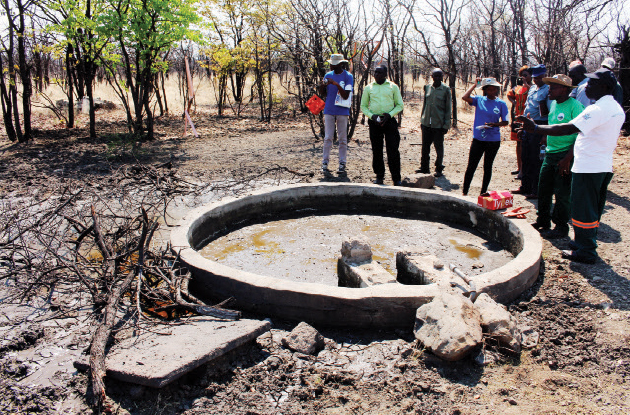Guinea opposition vow to dispute vote outcome

Conakry — Guineans flocked to the polls on Sunday to choose their president, shrugging off deadly pre-election violence though the opposition vowed to dispute the outcome.
Incumbent President Alpha Conde, the country’s first democratically elected president who is tipped to win a second term, led appeals for calm after around a dozen people were killed in deadly clashes between rival camps on Thursday and Friday.
The opposition is claiming the elections are neither free nor fair, raising fears of post-vote unrest. Ballots in 2010 and 2013 were marred by violence and accusations of fraud.
Speaking after voting in the capital, Conde said: “I ask all Guineans, whatever their party, to fulfil their civic duty peacefully and calmly.”
Polls were to close for the nation’s six million voters at 1800 GMT, but national electoral commission officials announced on Sunday a two-hour extension where necessary. Results of the first round are not expected until at least today. Former prime minister Cellou Dalein Diallo, leading the pack of seven challengers to the incumbent, said after casting his ballot in a Conakry suburb: “We must hope there’ll not be (violence) after the elections and that the people of Guinea show maturity.”
Diallo, head of the Union of Democratic Forces of Guinea (UFDG) party, earlier reversed a call for the polls to be postponed over fears of fraud.
Conde, referring to the Ebola outbreak that has ravaged the impoverished west African country, said: “After the Ebola epidemic, Guinea really needs to unite to get back to moving forward.”
The outbreak began in Guinea in December 2013 and spread to neighbouring Sierra Leone and Liberia before finally slowing early this year. At least 2,500 people died in Guinea alone. Conde, now 77, won the country’s first democratic elections in 2010 after spending some 30 years in exile, but they were tainted by violence and accusations of fraud, as were legislative polls in 2013.
The incumbent is hoping to trade on his five-year record of reforms, citing achievements such as an overhaul of the army and judiciary, as well as completion of a hydroelectric dam. “Ask the people of Guinea if what we’ve done in five years, the others did in 50. Ask that on the streets,” he said in an interview.
The head of the EU’s election observation mission, Frank Engel, painted a positive picture at midday of the voting.
He said the “vote is going well”, despite numerous delays.
“What we observed, and what was reported to us, doesn’t in my opinion mar the regularity of this election,” he said.
Guinean Interior Minister Mahmoud Cisse said the election was happening in “peace and calm” after visiting a part of Conakry that is often a starting point for opposition demonstrations.
Conde’s rivals, who also include former prime ministers Sidya Toure and Lansana Kouyate, have accused him of bad management, notably at the height of the Ebola crisis, and of fanning ethnic tensions, especially involving Diallo’s Fulani people.
The Fulani, Guinea’s largest and wealthiest ethnic group, have never enjoyed political power in the country. Conde’s rivals have vowed to challenge the results of Sunday’s vote, citing “anomalies and irregularities” and raising the spectre of further unrest in the mineral-rich former French colony.
Diallo said Sunday: “It’s a time to be vigilant, to ensure that Guineans’ suffrage is respected… so that the best man wins.”
Nearly 19,000 police and other security personnel were on duty, with all of Guinea’s borders closed for the day and only electoral observers, officials or those with special permits allowed to drive on the roads.
Voting was not a simple affair for some in the suburbs of Conakry who found themselves doing their civic duty in an abandoned bus.
“It’s shameful. Look at this, it looks like a hiding spot for bandits,” said a voter named Diallo, declining to give his last name.
Voting officials said the bus was pressed into service after finding that a school where the ballot was scheduled to be held was inexplicably closed. — AFP










Comments